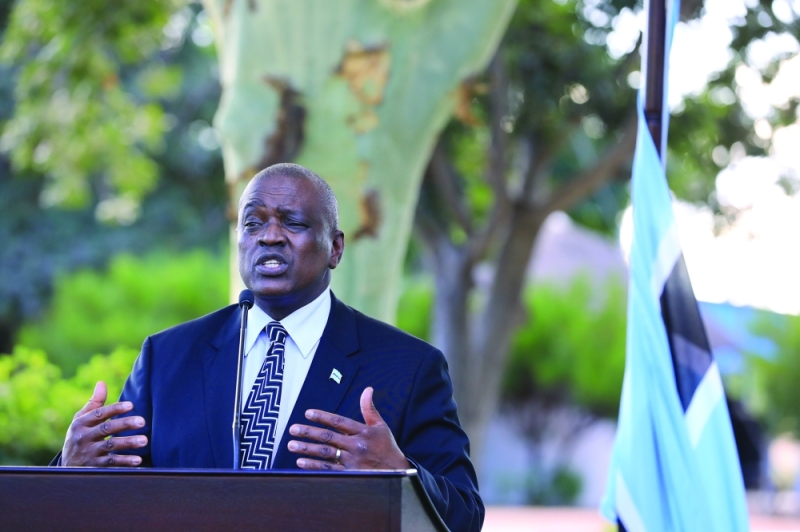Nothing wrong with automatic succession – Analyst
Tsaone Basimanebotlhe | Monday July 25, 2022 06:00


Over the years it has been visible that no regime can avoid the challenges of leadership succession indefinitely.
This has been the case for Botswana, which has had peaceful automatic succession since its independence 56 years ago.
Even though Botswana has been priding itself on peace and tranquility, this seems to be slowly eroding for the country. Botswana has had four peaceful successions, the late Sir Ketumile Masire took over after the death of the first president Sir Seretse Khama, then Masire chose former president Festus Mogae, Mogae also chose Ian Khama and Khama chose current President Mokgweetsi Masisi.
At some stage, Mogae was not happy with his successor accusing him of exhibiting traits of dictatorship with his intolerant tendencies and now Khama is not happy with his successor to the extent that he chose to skip the country as he is on self imposed exile in South Africa. Khama and Masisi feud has turned so ugly so much that Khama is now facing criminal charges that the former president is laughing off as abuse by his successor.
For the first time in the country’s history, Botswana has been experiencing a shouting match between the current President Masisi and the former president Khama. Masisi was appointed Vice President on November 12, 2014. He was Botswana’s eighth Vice President.
This has driven the country into more confusion wondering whether it is being haunted by the automatic succession, which has over the years been somewhat a blessing. There is no week that passes without Masisi and Khama poking at each other. This has seen the country becoming a laughing stock of other countries as its dirty linen is being washed in public.
The Constitution of the country gives the President the power to choose his or her vice President and Parliament just endorses the President’s choice. This has been the practice since 1966 and it has been working well for the country. Now what has been a blessing is turning into a sour grape. According to section 35(1), a Vice President is not elected but automatically becomes President when a sitting President dies, resigns or ceases to hold office.
It has since become evident that President chooses his successor thinking that the person will be submissive to him after taking over. This is so because Mogae openly criticised Khama and labelled him a dictator when Khama was President.
Now Khama regrets appointing Masisi simply because he is refusing to give him what he wants, some observers say.
It is clear that when the former and current presidents do not agree on something, they fight.
However, political analyst Lesole Machacha said there is nothing wrong with automatic succession but the problem is the leadership. He also said by the look of things, it has worked well before and it can still work. “At times it is the expectation of people after choosing their successors that creates problems. Any political system of election or that is being used to choose leaders has its own advantages and disadvantages. For example during Masire’s time, it was fine. Leadership needs patriotism. It is not about the system but the leadership direction. Will the new system that people think about be effective? Leaders will never see things the same way and they need to understand that,” he said.
“That is why each leader has had good things that he will be remembered for and those that he failed to achieve. Even their expenditure on things will be different. For example, others were curious about how they spent and did not want to just use foreign exchange reserve but now it’s a different story.”
Machacha said some former presidents want their successors to behave like them or to protect their desires, something that will be wrong for the country.
Recently at the BDP national council, members supported the current system of automatic succession and rather asked for the role of the Vice President to be broadened and provided for in the constitution.
Their contention was that currently, the Vice President position is a ceremonial one without clear roles. The members also want a clause that requires one to be a Vice President to have a constituency be re-looked into so that it allows even special nominated Members of Parliament to accede to that position.
According to the Constitution, where the Vice President is performing the functions of the office of President in accordance with section 35 or 36 of this Constitution, they may appoint a person, from amongst the Members of the Assembly, to perform the functions of the office of Vice President and any person so appointed may discharge those functions accordingly: Provided that a person appointed under this subsection shall cease to perform the functions of the office of Vice President—if his appointment is revoked by the Vice President; if he ceases to be a Member of the Assembly otherwise than by reason of a dissolution of Parliament; or if the Vice President ceases to perform the functions of the office of President.
